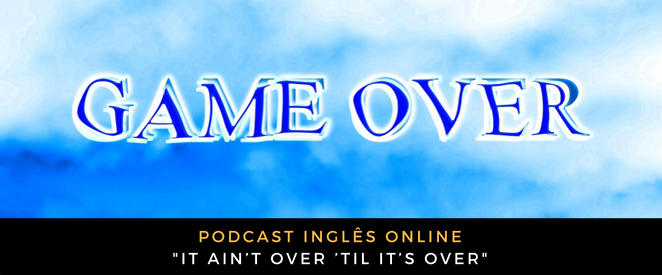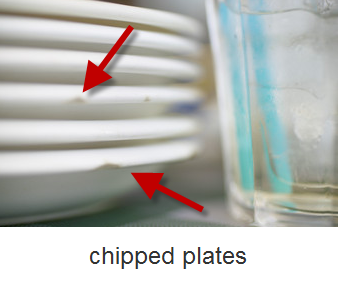In 2 days a have a English test and I didn’t have time to study, but it’s not over ’till it’s over.
Yesterday while I was reading the book Alice’s Adventures in Wonderland, I saw the expression “worth the trouble” being used. It was like this: “(…) whether the pleasure of making a daisy chain would be worth the trouble of getting up and picking the daisies”
Thank you, Ana! Your podcasts are very helpful.
Ana, não só as dicas de hoje, mas, todas as que você nos envia são SUPIMPA! Sempre PARABÉNS e gratíssimos por este excelente site. Grande abraço!
Hi everyone!! Reading all the comments… thanks :)
Hi, Ana Luiza. Although I am a “new kid on the block”, I mean writing about the posts, I should say I’ve been following your tips and podcasts for a long time. Thanks a lot for sharing your knowledge with all of us. As I am a journalist, could you bring us some terms and expressions we found when watching the news on TV?
Amei as dicas. Parabéns.
It’s always good to listen Ana Luiza’s podcast, she got a beautiful voice, i think her accent so cute. Those podcast help me so much.
you are now reading very fast.
você agora está lendo muito rapido.
Hi Ana,
I Have some questions that hasn’t so clear to me:
The pronunciation of NaPkins, Isn’t The “P” pronounced ? Is it a mute P?
2-0 (nil) that nil is informal use? Can I use this all time?
Hi Marco
Yes, the P is pronounced, very quickly.
I’m not sure whether nil is informal… I’d say no.
Hi everyone!! Great to see you all here. Keep listening :)
Very good this podcast. This expressions are new for me. Thanks.
Thanks, very useful article! very nice!!
Hi Ana,
thank you for this podcast. All sentences are very helpful, and like that song very very. I will share on my facebook.
You are great.
Hello Ana!! How are you? :’)
Well, that kind of situation usually happens with lots of people I guess.
Yesterday I went to the theater with a friend of mine and when we were going to the subway and then she told me “Jeff, I think I don’t have money enough to buy a ticket to go by subway, could we go by bus?” I told her “C’mon! It’s not worth the trouble. I can pay it for you”
Thanks Ana!!!
See you :*
Thanks, Congrats!
I aint got an example, but I d like to say that your podcast really helps.
My english is like geting rusty, and it helps me to keep it up to date.
thanks
I loved this tips!!!
Please, I’d like an explanation about this sentence “Should you go buy plates?” Why you use “go buy” and not “go buying?”
Oi Regina – não sei te dizer o porquê – o que posso dizer é que é assim
Should you go buy plates?
ou
Should you go and buy plates?
Que, aliás, é até bem parecido com o jeito que falamos em português.
Thank you, so much!
Hello Luiza, how’s it going?
Sorry for my delay in leaving my comments here. My lack of time does not let me come here in order to be in touch.
Actually your effort in updating and displaying the outcomes here is simply outstanding. Congratulations for the blog.
I love every new expression you publish herein. I have to say to you that I enjoyed a lot when you interviewed Mr. Steve Ford, who was a virtual friend-teacher of mine some years ago. You up to certain point reminded me our touch.
For my tight schedule, the most time I forget that you have a comment box to leave you a well deserved compliment.
That is all for while… keep going on… everything is great.
Hi Elizeu, thanks for the comment! Great that you know Steve. We have several of his videos around here.



 Let’s move on to another interesting set phrase in English. Here’s an example: let’s say you’re home, hanging out with a few friends and one of them says “I’m hungry. Let’s order some pizza”. You have just moved into this house, and you haven’t bought any plates yet. You have no plates in your house. You got rid of the old ones ’cause they were all old and chipped, and you still haven’t gotten around to buying new ones!
Let’s move on to another interesting set phrase in English. Here’s an example: let’s say you’re home, hanging out with a few friends and one of them says “I’m hungry. Let’s order some pizza”. You have just moved into this house, and you haven’t bought any plates yet. You have no plates in your house. You got rid of the old ones ’cause they were all old and chipped, and you still haven’t gotten around to buying new ones!